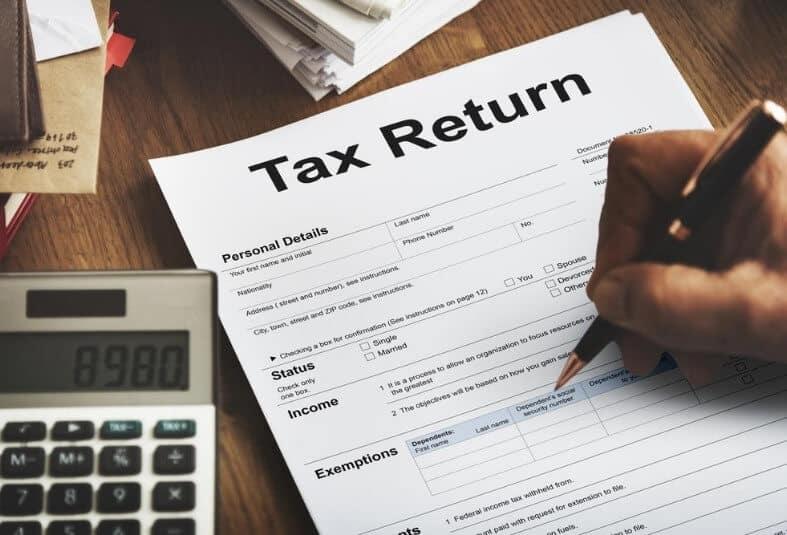Top Benefits of Using an Online Tax Return in Australia
Top Benefits of Using an Online Tax Return in Australia
Blog Article
Making Uses Of a Tax Return: Unlocking Prospective Cost Savings and Guaranteeing a Larger Tax Reimbursement
The income tax return works as an important instrument for people seeking to maximize their economic outcomes, offering numerous methods for potential cost savings and improved reimbursements. By leveraging deductions and credit histories, taxpayers can tactically decrease their taxed earnings and improve their total financial standing. Nonetheless, the intricacies of tax obligation regulations and the ever-evolving landscape of tax obligation regulation demand an extensive understanding of readily available choices. What are the essential approaches that can be utilized to assure that taxpayers take advantage of on these advantages? The response might expose greater than just financial gains.
Recognizing Tax Obligation Reductions
Many taxpayers may discover themselves overwhelmed by the intricacies of tax obligation reductions, yet comprehending these crucial elements is crucial for making best use of prospective savings. Tax reductions lower taxed income, therefore lowering the overall tax obligation responsibility for businesses and people. Acquainting oneself with the numerous kinds of deductions offered can considerably enhance one's ability to enhance income tax return.
Reductions can be categorized into conventional and itemized deductions. The basic deduction offers a fixed reduction in gross income, while itemized deductions allow taxpayers to specify certain expenses, such as mortgage rate of interest, state taxes, and charitable contributions. Taxpayers should examine which choice yields the best benefit, as picking the proper deduction technique can bring about substantial financial savings.
Additionally, it is necessary to keep precise documents of deductible expenses throughout the tax obligation year. This method not only facilitates the preparation of tax returns but additionally assures compliance with internal revenue service needs. Taxpayers should likewise remain educated about modifications in tax obligation laws that may impact qualified reductions, as these can vary every year. By effectively going across the landscape of tax obligation deductions, individuals can expose the possibility for a more beneficial tax obligation end result and secure higher monetary advantages.
Exploring Tax Credit Reports
Tax obligation credit reports represent an additional remarkable method for taxpayers to lower their overall tax obligation liability, matching the benefits got from reductions. Unlike reductions, which lower gross income, tax obligation credit histories give a dollar-for-dollar reduction of the actual tax owed. This distinction makes tax obligation credit scores especially useful for people looking for to maximize their cost savings.
There are 2 major types of tax obligation credit reports: refundable and nonrefundable. Nonrefundable credits can lower your tax obligation responsibility to no but not below that amount, while refundable credit histories can cause a reimbursement if the credit scores surpass the tax obligation owed. Instances of frequently asserted tax credits consist of the Earned Income Tax Obligation Debt (EITC), the Kid Tax Obligation Credit score, and education-related credit ratings like the American Opportunity Credit Scores.
Eligibility needs for these credits can differ substantially, typically based upon revenue, filing standing, and specific scenarios. Taxpayers should thoroughly review the criteria connected with each debt to determine they declare all benefits for which they certify. By purposefully making use of offered tax obligation debts, individuals can improve their income tax return, ultimately resulting in considerable financial savings and potentially larger refunds.

Spending Your Reimbursement Wisely
Receiving a Tax reimbursement can really feel like a monetary windfall, yet just how that money is made use of can profoundly influence lasting economic wellness. Instead of watching your reimbursement as disposable revenue, consider it an opportunity to buy your future.

One reliable option is adding to a Specific Retired Life Account (INDIVIDUAL RETIREMENT ACCOUNT) This can boost your retired life savings while potentially yielding tax benefits. Investing in a diversified supply portfolio can give considerable development potential over time, permitting your reimbursement to work for you in the market.
In addition, think about utilizing your refund to pay for high-interest debt, browse around this web-site such as charge card equilibriums. Minimizing financial debt can enhance your financial standing and ease anxiety, inevitably permitting you to allocate more funds towards financial investments in the future.
For those concentrated on education, utilizing your reimbursement for a 529 college cost savings strategy can aid secure a brighter future on your own or your youngsters.
Planning for Future Costs
Thoroughly preparing for future expenditures is essential for preserving monetary security and achieving long-term objectives. A well-structured financial strategy permits individuals to allocate resources efficiently, guaranteeing that upcoming prices do not disrupt their economic health. Income tax return can supply a useful foundation for this preparation process.
Utilizing the reimbursement as a springboard, people can determine and prioritize considerable future costs, such as home fixings, education and learning prices, or medical care demands. Developing a budget that incorporates these prepared for expenditures makes it possible for an aggressive technique, lessening the probability of monetary stress when the time concerns address them.
Furthermore, setting aside funds from your tax refund right into specialized savings accounts can improve the performance of your planning. Australian Tax return online. Think about producing an emergency situation fund specifically for unforeseen expenses, guaranteeing that you are prepared for unanticipated scenarios without thwarting your economic goals
Typical Blunders to Avoid
Lots of individuals make vital errors when managing their tax obligation returns that can threaten their financial planning initiatives. Insufficient documentation can lead to missed out on reductions, resulting in a lower refund or higher tax liability.
One more regular blunder is disregarding to assess tax law adjustments. Tax laws can advance annually, and ignorance of these modifications might cause missed out on opportunities for tax debts or reductions. Furthermore, lots of taxpayers neglect eligible deductions, such as those for academic prices or medical expenditures.

Declaring tax obligations prematurely or far too late can likewise be destructive. Early address filers might miss out on out on last-minute tax breaks, while late filers run the risk of penalties and passion.
In addition, not seeking specialist help when required can cause costly errors. Tax obligation experts can provide valuable understandings, making certain conformity and optimizing potential financial savings.
Finally, hurrying via the return can cause straightforward arithmetic errors or overlooked forms. Putting in the time to verify all entries is vital for an effective tax return result.
Final Thought
To sum up, the strategic use of tax returns serves as an important system for making best use of economic advantages. Understanding of usual mistakes can also enhance the tax obligation procedure, eventually equipping taxpayers to take advantage of their returns for a more safe monetary future.
Tax obligation credit reports stand for an additional notable opportunity for taxpayers to reduce their general tax obligation responsibility, complementing the advantages gained from deductions. Unlike deductions, which reduced taxable earnings, tax credit reports provide a dollar-for-dollar reduction of the real tax obligation owed. Nonrefundable debts can reduce your tax obligation to no however not below that amount, while refundable credit reports can result in a refund if the credit histories exceed the tax owed. Instances of commonly declared tax irs statute of limitations credit histories include the Earned Revenue Tax Obligation Debt (EITC), the Child Tax Obligation Debt, and education-related debts like the American Possibility Credit Score.
Tax policies can develop yearly, and ignorance of these adjustments might result in missed out on chances for tax credit ratings or deductions. - Australian Tax return online
Report this page